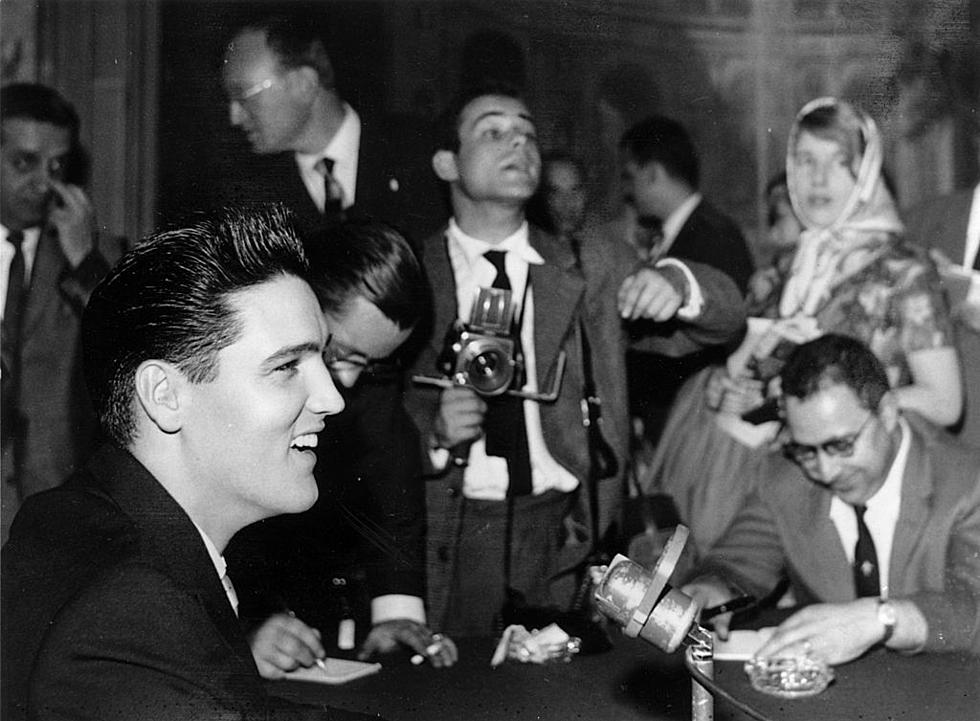
INTERVIEW: William Clark Green Takes a New Path to ‘Baker Hotel’
Baker Hotel is a different kind of album for William Clark Green. Like many artists navigating the pandemic, the 35-year-old Texan wrote much of his sixth career record over the past two years. Each of Green's past records' title tracks were penned about a Texas town, and his latest continues that tradition. Baker Hotel is named after the legendary, now abandoned hotel of the same name located in Mineral Wells.
"It was a super weird time," he tells The Boot of life during the pandemic. "There was a lot of time for self-reflection."
The process of creating Baker Hotel differed from that of Green's previous records in many ways. This time, he primarily wrote all of the tracks with songwriters who are also solo artists themselves. It was a much different scenario than what Green was used to, where he only approached other songwriters to collaborate after writing the bulk of the material on his own.
"On my last record, I got kind of burned out on that," he says. Green opted to work with artists he personally admired, including Drew Kennedy, Zane Williams and Ross Cooper. "I wanted to have the influence of the artistic side of something that I didn't have."
Baker Hotel also differs from previous records because it represents a very specific part of Green's life. Rachel Loy, who produced his previous records Rose Queen and Ringling Road, returned for the project and is also featured on bass. This mixture of familiarity with a fresh approach to songwriting inspired Green to write this chapter in new ways.
"If you get put in a room in Nashville with songwriters, you may have never met them or heard their songs," he says. "When you hear an artist's record, you're hearing the music that they like. Any artist that says they don't listen to or don't like their own music is full of [expletive]. You wouldn't put out a record if you didn't like it. It's a great representation of the type of music that you like. That's your art. That's what you're putting out there."
Having a representative body of work from the artists he wrote with allowed him to choose collaborators that he found most suited for his ideas. That, he says, made the process easier and made it feel more familiar.
"Writing a song is a very vulnerable thing, and some guys aren't very open to it," he says. "They keep it pretty closed. But some guys like me, hell, I'll write with anybody. If I'm in Nashville and I've devoted time to it, I want to work."
Still, creating a great song is never easy -- even if the want, passion and drive is there from both parties. "It's a funny thing. I've written songs with some guys and put those on records and I don't ever want to talk to them again," he notes. "I've written twice with Radney Foster and we've never gotten anything out of it -- and I'm his biggest fan. But we've never been able to get a song together."
The collection of artists that he called on were all people that he knew he could count on. They've long had mutual respect, and they know that Green is a fan. He listens to their records. He calls them up and tells them each time each song that he loves. He goes to their shows.
"I can do what I do all day long," he says. "But I want to learn how you do what you do because I love it. It makes it a lot easier when it's opened up like that. I love your music. I'm a fan of your music."
While Green assures that he is constantly evolving, there was a point during the pandemic when he didn't touch his guitar for an entire year. It was something that he hadn't done since he was 22-years-old. Over the course of the 13 years in between, he was always on the road. He never slowed down. He and his band never took time off. Being forced to do so also provided new perspective.
"I didn't write a song," he says of the year he spent away from his music. "I played three shows, maybe. Those were just some private, backyard functions. The road is fast-paced. You're in the bus and you're surrounded by fun people all the time. Life's a party. One day, you wake up and you don't know where the last five years have gone."
Being able to give himself time and space from the grind of life on the road gave him new perspective on life.
"That year gave me an opportunity to make things that are a priority more of a priority and make music less of a priority," he says. "I dedicated a third of my life to the road and playing music for people. You kind of lose yourself in the shuffle. You start doing it at 22, and one day you wake up and you're 35. Where are you at? What are you doing? How's your personal life? Do you even have one? Or have you destroyed it? That's 15 years. And that's dang near half my life. What do you have to show for it? That was a [expletive] to deal with for a year, you know?"
The break was a mixed blessing. Green was grateful that he could afford to take a year off -- a privilege he, nor most artists, can do easily or often -- partially thanks to proceeds from merch sales and streaming. That experience made him even more grateful for his job and the fans that keep coming out to his shows.
"It gave me a new appreciation for having a job that makes people happy," he says. "Do you know how many people have jobs that don't make people happy? Every day, their job makes people mad. But my job makes people happy. It's awesome!"
"People have a good time coming out and listening to me," he notes. "I didn't realize that before COVID. I was taking a lot of stuff for granted."
William Clark Green is back on the road in support of Baker Hotel with concert dates scheduled through July. He's set to perform at venues across Texas and throughout the Deep South, including a stop at The Basement East in Nashville on May 13. For a full list of dates, check out Green's official website.
Every Grammy Awards Best Americana Album Winner Ever
More From Newstalk 1290










